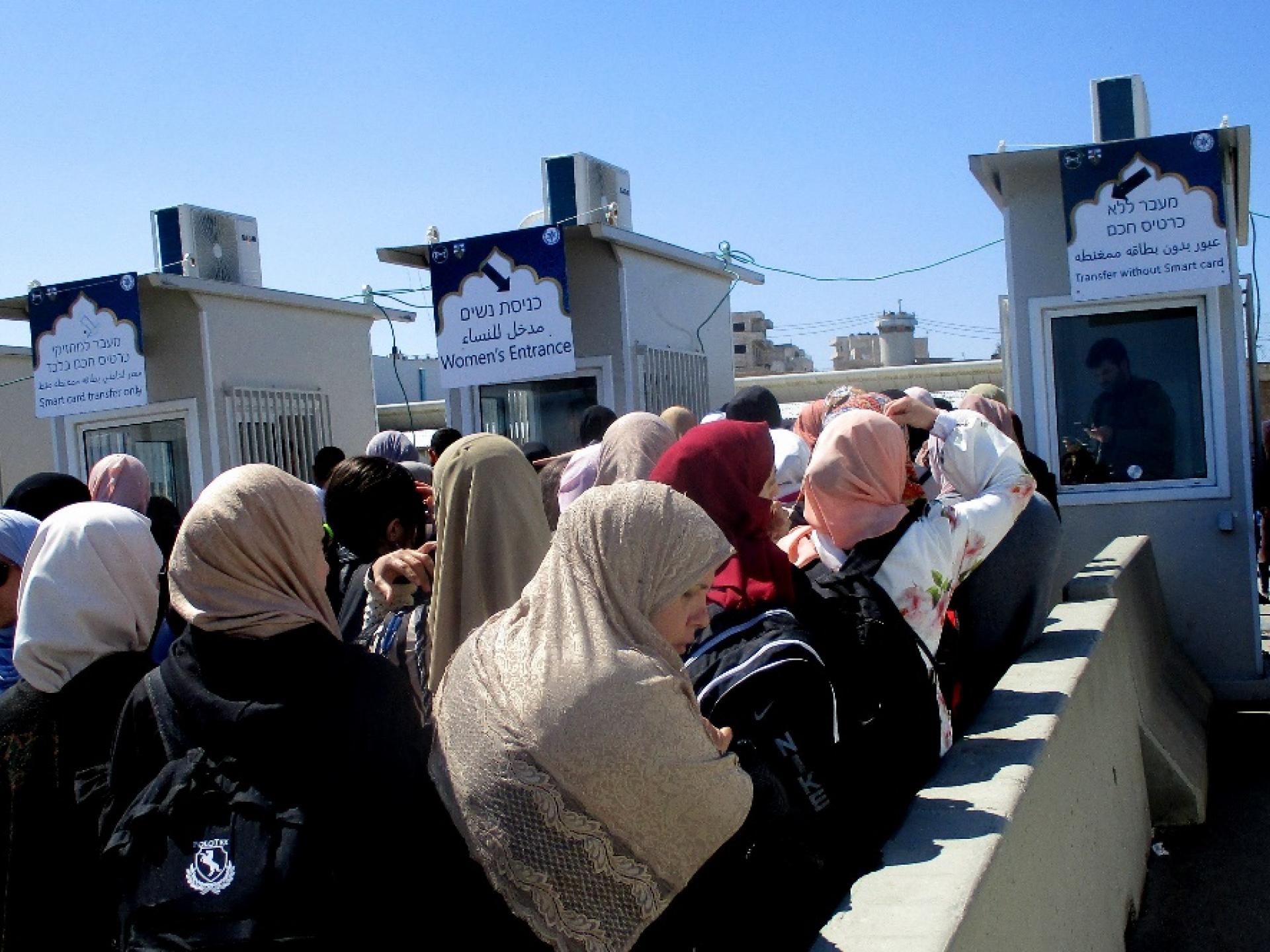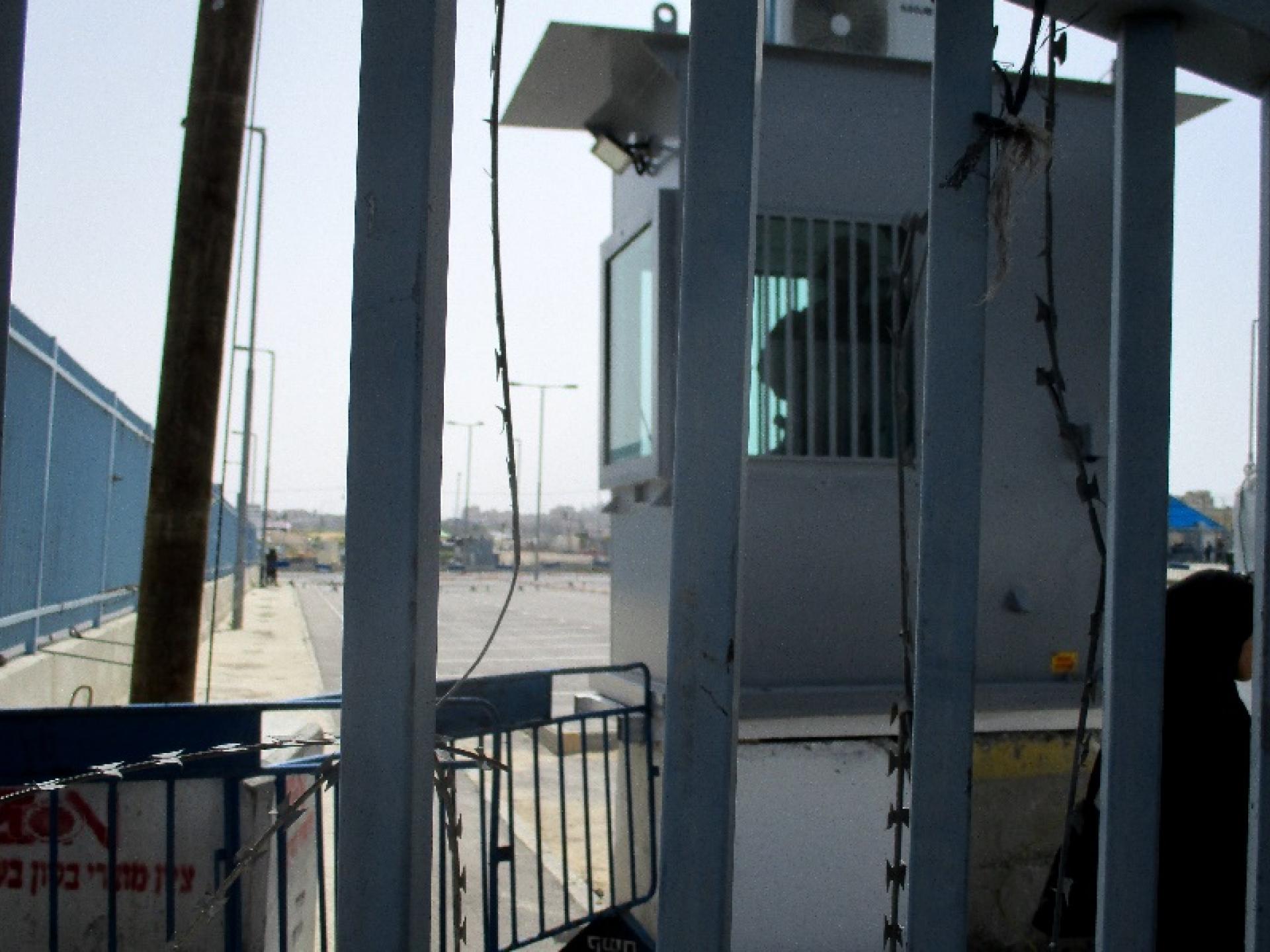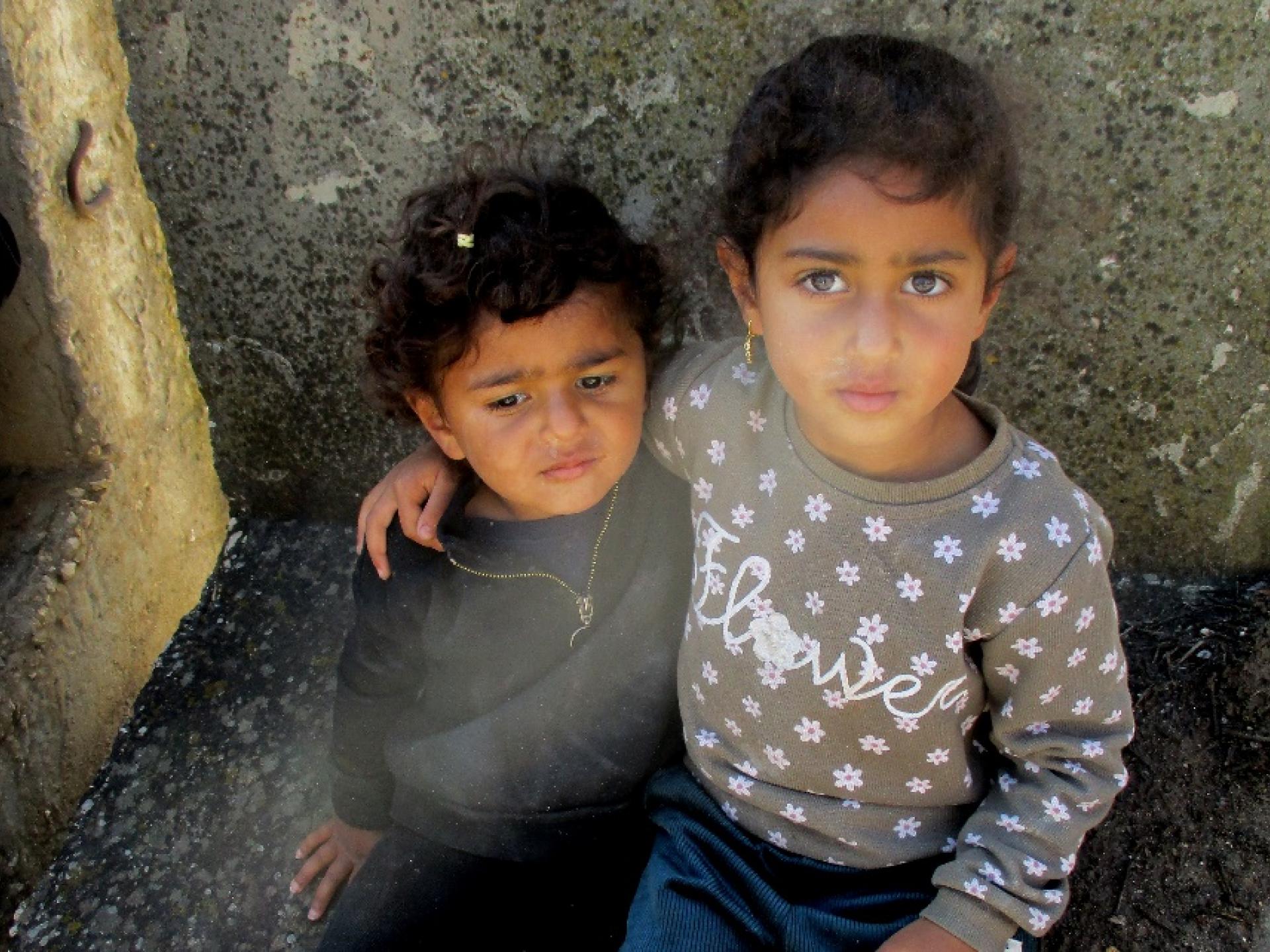Qalandiya - fourth Friday of Ramadan
On the fourth Ramadan Friday, the atmosphere was more relaxed than it had been last week.
The place was less tense, hectic, soldiers and police yelled less, and projected to the Palestinians who were less tense and anxious.
But one must not get used to the fact that despair becomes more bearable, the daily reality ruling the entire West Bank for so many years.
The same restrictions are in place, the same regimentation, the same draconian instructions, the same sights of men, women and children being turned back, the same corrals, the same fences, the same weapons turned against people’s bodies as though they were things and not human beings.
In the pre-arranged order, thousands are led in lines set by the ruler, on the side designated by the ruler, in narrow lanes until they face a concrete post with an armored glass pane behind which a person checks with their computer how eligible the person facing him is to come (or not) to pray at the Al Aqsa Mosque.
Not freedom of worship, nor basic human rights determine this – only the computer. It alone determines who will go up the mountain and who will be blocked. Checked.
Every year, at Ramadan, I try to understand the reason for the habitual gender separation, why different and separate paths are set for women and men, what – in the eyes of the policy makers – is different in the passage of people every day of the year in the army checkpoints where men and women are crowded together, unseparated, different from Ramadan Fridays?
The language laundry claiming protection from sexual harassment does not hold water – it is full of holes, for verbal and physical and even rape actions on the part of soldiers against Palestinian women have been exposed. Even these days, when they supposedly protect women, soldiers and police serve together with women soldiers and policewomen as they see Palestinians – both women and men. Obviously, the only purpose serving the ruler is over-regimentation of more than hundreds of thousands.
Nor do I fathom the matter of the huge area around the checkpoint structure, which normally a Palestinian foot may not tread, and is meant for the rulers only. Army lingo calls it “sterile ground”. In fact, according to this name, the area is free of infection…
ground”. In fact, according to this name, the area is free of infection…
Does this mean that we, “normal” people, are dirt, infectious?
The same answer holds here as well: over-regimentation and denial of basic rights.
I had a moment of satisfaction when a delegation of three – two women-soldiers and a male soldier – exited the “sterile ground” and marched towards me to where I stood facing the women’s line and behind the first-aid volunteers. “You are not allowed to photograph us” they claimed assertively. I explained that the law allows any uniform-wearer to be photographed since they are public servants. Then the claim became a request. I answered that I would consider it, but do not promise to comply. They asked why am I standing with Palestinians, anyway? “It’s dangerous, if you run into trouble only the army can help”. Let’s ask our friends here behind me, I said, and turning around, continued: “Jihan (the closest to me), they’re asking who would help me if I run into trouble”. Like a well-practiced chorus, at least ten mouths answered: “We will! We’ll help you!”
ground” and marched towards me to where I stood facing the women’s line and behind the first-aid volunteers. “You are not allowed to photograph us” they claimed assertively. I explained that the law allows any uniform-wearer to be photographed since they are public servants. Then the claim became a request. I answered that I would consider it, but do not promise to comply. They asked why am I standing with Palestinians, anyway? “It’s dangerous, if you run into trouble only the army can help”. Let’s ask our friends here behind me, I said, and turning around, continued: “Jihan (the closest to me), they’re asking who would help me if I run into trouble”. Like a well-practiced chorus, at least ten mouths answered: “We will! We’ll help you!”
The thing that dimmed the otherwise lighter atmosphere there, were the faces and extinguished look of the sisters sitting in the shade of the wall. They and their father were ruled out by the selection, and were not permitted to continue to their longed-for destination.



